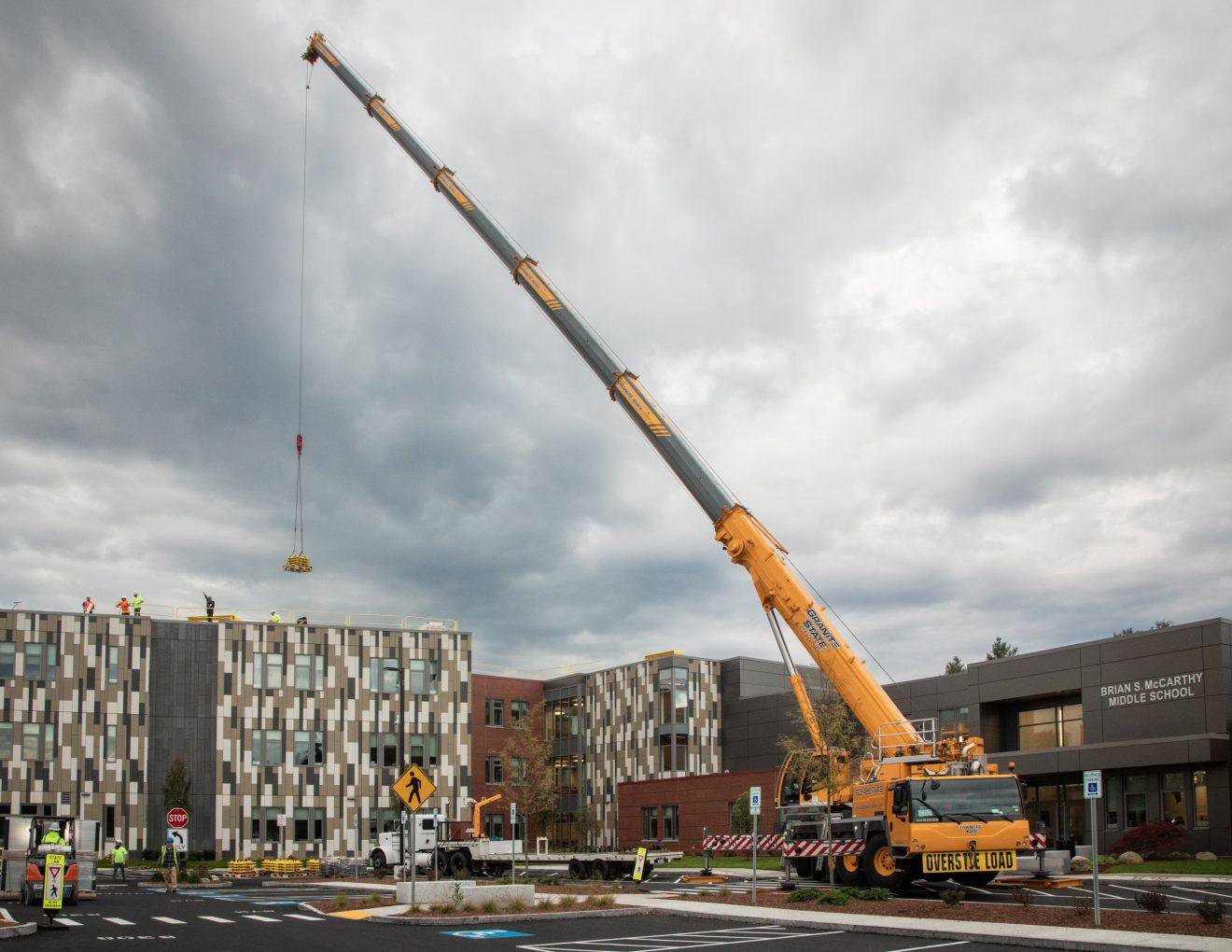Construction crews can be seen working on the roof of the newly opened Brian McCarthy Middle School. The good news is that they are not there making repairs, they are there installing a new solar energy system for the school. That installation is part of the City of Nashua’s long-term investment in renewable and clean energy.
Revision Energy is the contractor installing the solar systems on the roof of the new school. The employee-owned company operates in Maine, New Hampshire and Massachusetts and has installed tens of thousands of residential and commercial solar projects. They have installed systems on multiple city structures and schools beginning in 2019.
All of the school buildings remain connected to the grid 24/7. That means during the day, particularly in the summer, the schools send more power back to the grid than they consume. At night and in the cold winter months, they draw from the grid to make up for demand and darkness.
“Most of the time when the sun is shining, they help to power homes in the neighborhood. In the summer they send much of the power out, and over the year are producing more power than they are using,” said Dan Weeks, vice president of business development at Revision Energy.

Crews with Revision Energy loading the parts of the new solar array by crane onto the roof of the Brian McCarthy Middle School. (Courtesy of Dan Splaine Photography)
The McCarthy School installation is not financed directly by the city. Tax incentives for renewables cannot be accessed by municipalities and nonprofits due to their tax-free status.
This system is financed by a Power Purchase Agreement (PPA) to source the capital required. Revision paired the school system with local mission-motivated investors who can take advantage of the tax incentives. The investor owns and operates the array at the city’s location and sells the electricity back to the city at guaranteed below-market rates.
Revision has installed systems on these city buildings: Dr. Crisp School, Fairgrounds School, Penichuck School, Lake Street Fire Station, Nashua Transit Garage, and McCarthy Middle School.
The total capacity across the Nashua projects is approximately 2.1 megawatts (MW), which generates over 2,400,000 kWh per year and reduces energy costs and carbon pollution. The average NH home consumes 627 kWh per month.
This article is being shared by partners in the Granite State News Collaborative. For more information, visit collaborativenh.org.